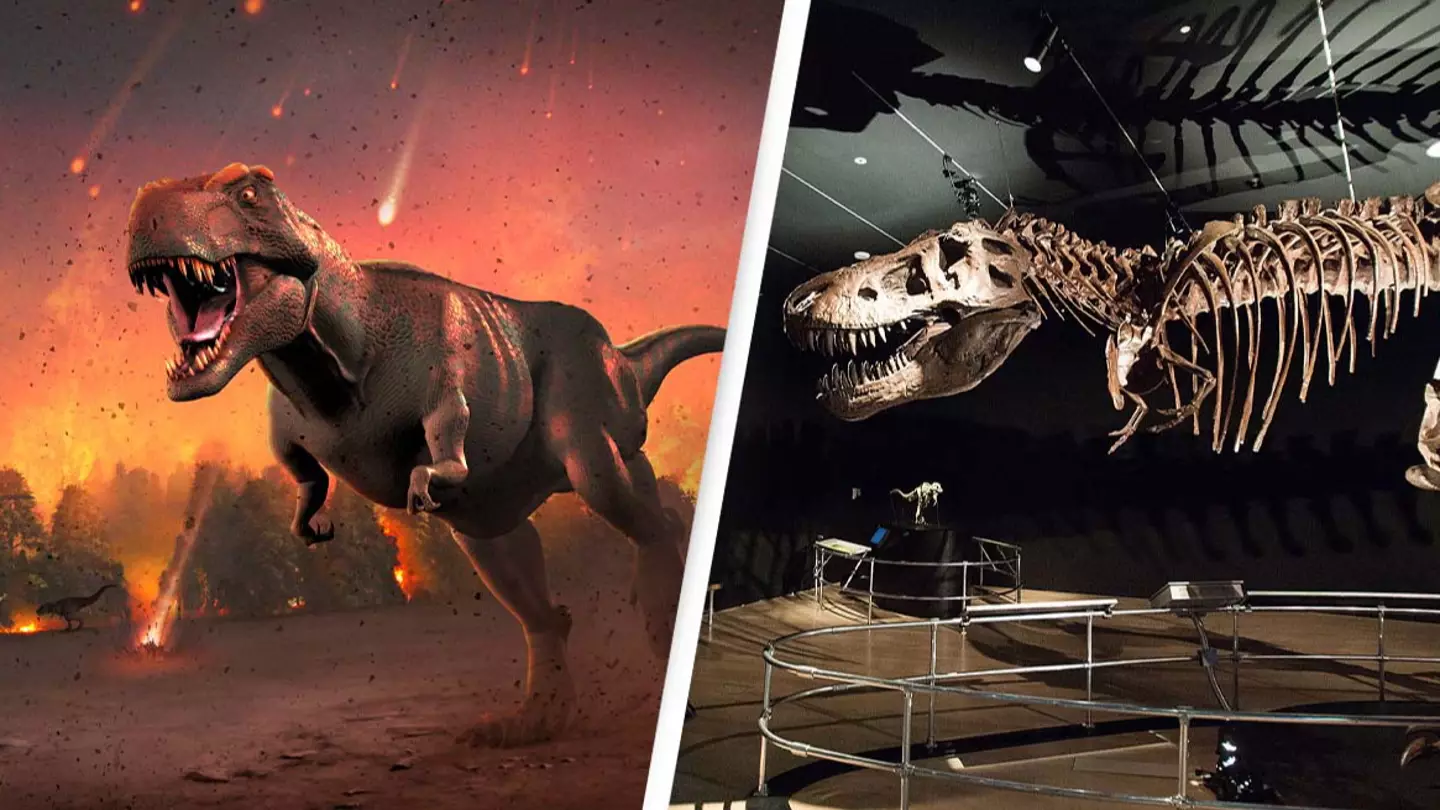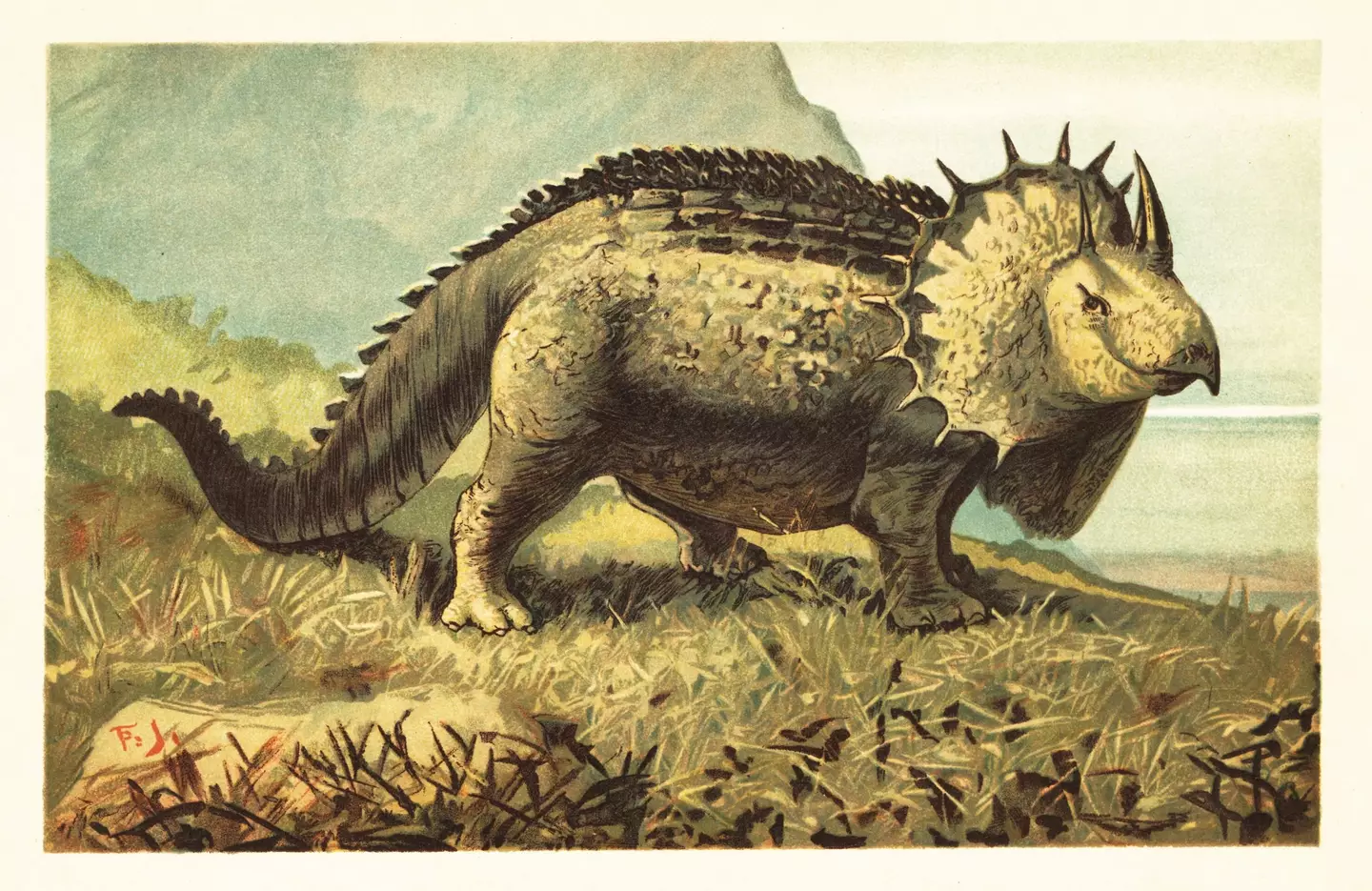
Scientists think they've identified a major cause of why dinosaurs ended up going extinct.
Dinosaurs went extinct roughly 65 million years ago, after living on the planet for around 165 million years.
It was the end of a time known as the Cretaceous Period that they walked their last steps on Earth and there's one particular theory which has been focused on by scientists which may explain why.
Advert
However, a group of researchers from the Royal Observatory of Belgium now believe they've identified a major factor which led to the dinosaurs' demise, which wasn't previously appreciated as playing such a pivotal role.
Around 66 million years ago, an asteroid struck the Yucatan Peninsula in Mexico.
While the asteroid was believed to have been around 10-15 kilometers in width, it left an 150km crater as a result of the velocity of the impact - the impact site known as the Chicxulub crater.
Advert
It's impact caused mega-tsunamis, earthquakes and wildfires which scientists to believe 75 percent of Earth's animals - including dinosaurs - were immediately wiped out in the asteroid's wake.
A new report has since revealed one factor of the asteroid hit could've played a bigger role in dinosaurs' extinction than previously considered.

In a study titled Chicxulub impact winter sustained by fine silicate dust published by Nature Geoscience, Cem Berk Senel and a group of scientists from the Royal Observatory of Belgium have focused in on the role of the 'various debris injected into the atmosphere following the Chicxulub impact'.
Advert
The scientists believe around 2,000 gigatonnes of dust ended up in the atmosphere, leading to the Sun being blocked and Earth being subjected to a 'global winter' - surface temperatures dropping by as much as 15C.
With the Sun's rays blocked, the ecosystem would've been interrupted - plants unable to photosynthesis and being killed off, herbivorous animals having nothing to eat and subsequently dying out too, leading all the way up to meat-eaters.
Soot and sulfur from wildfires also played a part in blocking plants ability to photosynthesise.
After running tests on sediment discovered at a North Dakota fossil site, the team predicted the dust could've blocked the Sun for as long as two years and stayed in the atmosphere for 15 years.
Advert
The team subsequently believe instead of the asteroid killing off dinosaurs immediately, it took several years for the animals to die out.
Topics: Science, World News